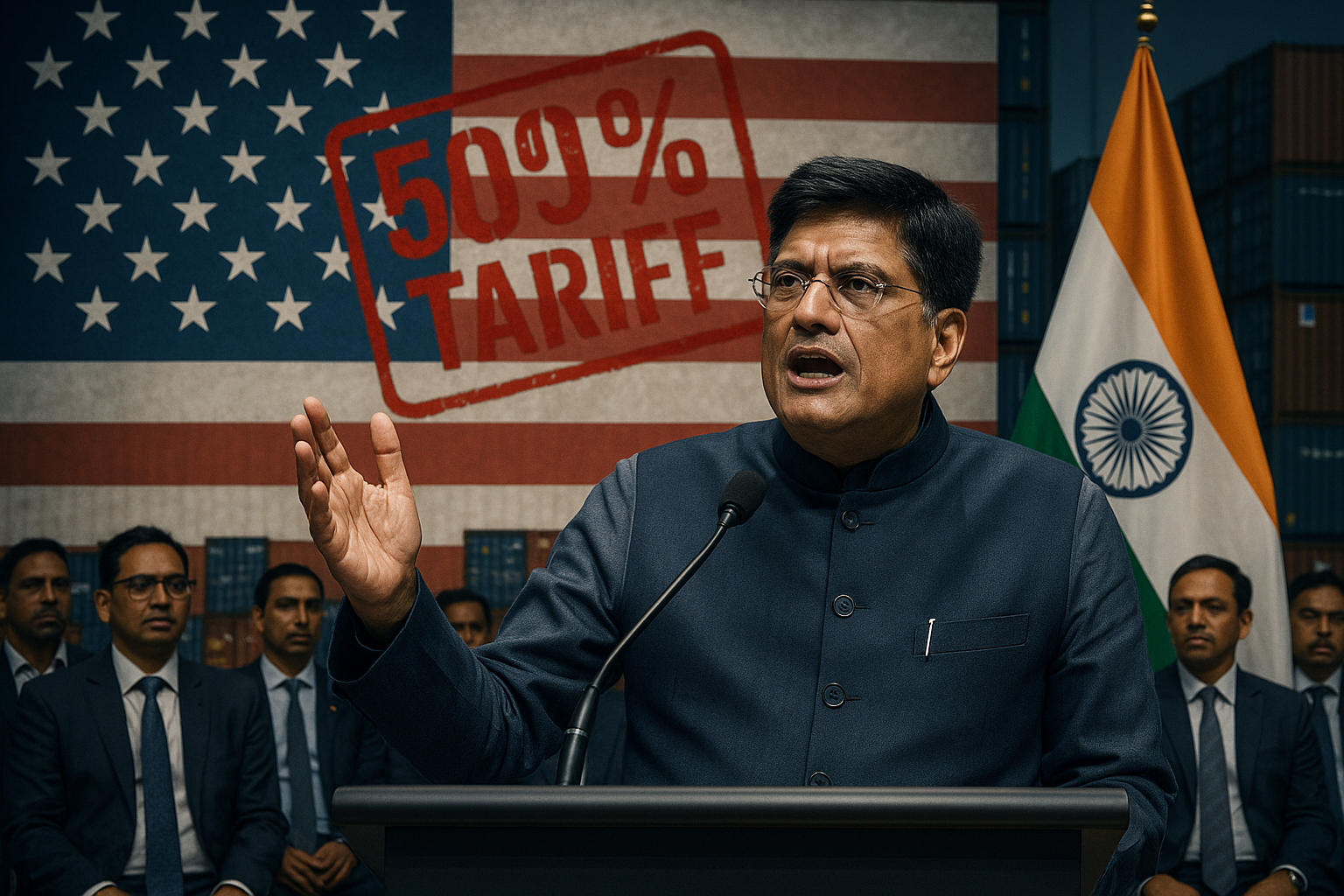Commerce and Industry Minister Piyush Goyal firmly declared that India will not bow down to the U.S. decision to impose a steep 50% tariff on Indian exports, calling it one of the most aggressive trade actions in recent years. He emphasized that New Delhi will protect its exporters and industries while continuing to engage in negotiations to secure fair treatment.
The statement signals India’s resolve to balance diplomacy with economic resilience, even as the tariff shock threatens key export sectors.
India’s Stand on U.S. Tariffs
The U.S. move, which affects labour-intensive industries such as textiles, gems & jewellery, and leather, has sparked concerns about competitiveness and job losses.
Goyal, however, asserted that India’s exporters would not be left vulnerable:
-
The government will provide support measures for affected industries.
-
India will pursue diversification of export markets to reduce reliance on the U.S.
-
Diplomatic channels will be used to push back against unilateral trade pressures.
His remarks underline India’s broader stance of self-reliance combined with global engagement.
Impact on Indian Exports
With the U.S. accounting for nearly 20% of India’s exports (over 2% of GDP), the tariff hike represents a significant challenge. Exporters face higher landed costs in the U.S., reducing competitiveness against rivals like Bangladesh and Vietnam.
Industry associations have warned of potential order declines, but many also view this as a catalyst for exploring alternative markets in Europe, Africa, and Asia.
Policy and Strategic Perspective
The government is expected to roll out a combination of short-term relief and long-term reforms:
-
Strengthening export incentives under the Export Promotion Mission.
-
Improving logistics and compliance efficiency to offset tariff costs.
-
Deepening trade agreements with other global partners to secure access.
This reflects India’s commitment to building resilience while sending a clear message that it will not compromise sovereignty in the face of unilateral actions.
Why This Matters
-
For Exporters: Immediate challenges but also opportunities to diversify markets.
-
For Policymakers: A test of India’s diplomatic and economic resilience.
-
For Citizens: Tariffs could affect jobs and incomes in export-heavy industries.
The U.S. tariff shock is both a challenge and an inflection point for India’s trade policy—forcing deeper reforms, stronger global partnerships, and a firmer stance on protecting national interests.












